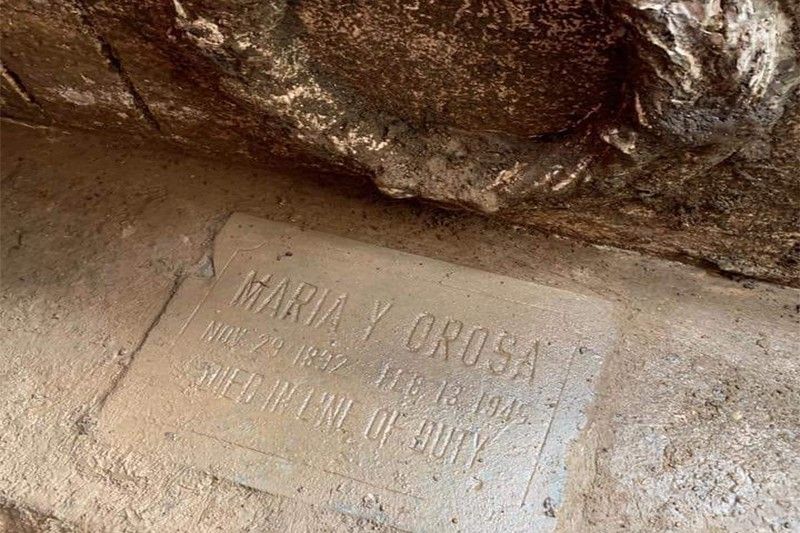Archaeologists unearth grave of WWII hero and banana ketchup inventor Maria Orosa

MANILA, Philippines — A group of archaeologists on Sunday unearthed the grave of Filipino World War II guerilla and scientist Maria Orosa in Manila, nearly 75 years since her martyrdom.
The grave was discovered at the Malate Catholic School compound.
Orosa who was born in Taal, Batangas, passed away on Feb. 13, 1945, after a bombing during the Battle for Manila.
The unearthed epitaph said Orosa “died in line of duty.”
National Quincentennial Committee, tasked to prepare the country’s commemoration of the 500 years of the victory at Mactan or the Quincentennial Commemorations in the Philippines, said that Orosa was among the unsung heroes of the war.
It said that Orosa “used science to save thousands of Filipinos and Americans in Manila from malnutrition and hunger by smuggling food beyond Japanese lines.”
Last November 29, search engine giant Google gave tribute to Orosa with a doodle to commemorate her 126th birthday.
"Born in the municipality of Taal within the Batangas province, Orosa went on to become an outstanding student, winning a partial government scholarship in 1916 to attend the University of Seattle. While living in a YMCA and working odd jobs, Orosa completed her bachelor’s and master’s degrees in pharmaceutical chemistry, as well as an additional degree in food chemistry," Google Doodle said.
Aside from being a war hero, Orosa was credited for her more than 700 recipes and preservation techniques which became iconic. This includes the country’s favorite condiment, banana ketchup, and food like powdered calamansi juice.
"Orosa’s knowledge of chemistry led to numerous culinary innovations. For instance, by fitting a traditional earthenware pot with two sheets of metal, she invented the Palayok Oven, providing remote villages lacking access to electricity with a more effective means of cooking over an open fire," Google also said.
"Although adobo and lumpia are synonymous with Filipino cuisine, Orosa’s banana ketchup is not far behind. Using mashed bananas as a base instead of tomatoes, she made the sauce a long-lasting hit. Two other inventions made her a war hero: Soyalac (a nutrient-rich drink derived from soya beans) and Darak (rice cookies packed with vitamin B-1, which could also prevent beriberi disease) saved countless lives during World War II," it added. — Rosette Adel
- Latest
- Trending


































